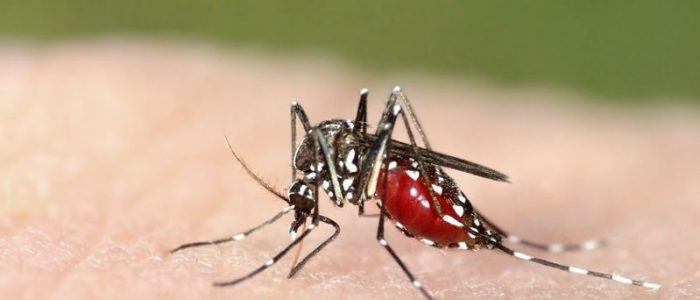Why Black-Tailed Mosquitoes Are Largely Responsible For The Spread Of EEE In New York
Culiseta melanura, or the “black-tailed mosquito” is a mosquito species found in the eastern United States where it’s considered the primary vector of eastern equine encephalitis (EEE). Although black-tailed mosquitoes don’t feed on human blood nearly as often as other mosquito species, black-tailed mosquitoes are, nevertheless, largely responsible for facilitating the spread of EEE in New York.
After acquiring EEE from the blood of infected birds, black-tailed mosquitoes spread the disease to numerous uninfected birds, thereby increasing the size of the EEE reservoir. Other mosquito species that frequently feed on both humans and birds, such as mosquitoes in the Aedes, Coquillettidia, and Culex genuses, feed on the blood of birds that contracted EEE from black-tailed mosquitoes. These mosquitoes then transmit the disease to humans through their bites.
Because black-tailed mosquitoes are largely responsible for spreading EEE among birds that urban mosquito species collect blood meals from, reducing the number of black-tailed mosquitoes in the environment would greatly reduce EEE infection rates among humans. Recent studies show that black-tailed mosquitoes sometimes feed on human blood, which means that they can transmit EEE directly to humans.
Black-tailed mosquitoes are unique for overwintering as larvae while most mosquito species overwinter only as adults and eggs. These mosquitoes breed in cool acidic water located in swamps and woodland pools in much of eastern Canada and down to Florida and east to Texas. Several generations of black-tailed mosquitoes can emerge per year in the southern states, but only two generations per year occur in the northeast, and the first generation of adults typically emerge in early May in New York.
EEE infects humans and many animals, such as horses, dogs and some bird species, and the most common symptoms of the disease include headache, fever, vomiting, seizures and coma. Around ⅓ of all people who contract EEE develop neuroinvasive disease that ultimately proves fatal, and children, the elderly and immunocompromised individuals are at the greatest risk of developing advanced cases of EEE. While an EEE vaccine exists for horses, a vaccine for humans has yet to be introduced.
Do you worry about contracting disease from mosquito bites?


Comments are closed.